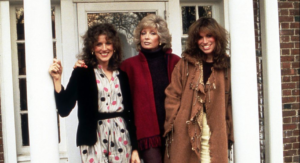For those of us who remain deeply concerned about the increasing trends of trivialization and outright denial of the Holocaust in our society, this has been a week for the record books.
First, we learned that a school district in Tennessee had effectively banned the Pulitzer Prize-winning graphic novel “Maus,” which tells the story of artist Art Spiegelman’s family history during the Holocaust. The district cited its “unnecessary use of profanity and nudity and its depiction of violence and suicide” as reasons for removing it from the middle school curriculum.
This baffling decision to remove from the curriculum an illustrated book that uses cats and mice to portray the perpetrators and victims of the Holocaust was the only latest slight in a year where numerous politicians and pundits repeatedly and dishonestly compared mask mandates and COVID-19 vaccines to the Nazis’ actions during World War II.
Racial laws behind Nazi genocide
And the irony wasn’t lost on anyone that the Tennessee decision came on the same day as International Holocaust Remembrance Day, which was established to help promote awareness and education about the Nazi genocide around the world.
Whoopi Goldberg was wrong. But so are many others about Jews, race and the Holocaust.
Next came stunning remarks from Whoopi Goldberg. Speaking on “The View” about the controversy over “Maus,” Goldberg said that the Holocaust wasn’t “about race,” and that it was really about “man’s inhumanity to man.” Challenged by her co-hosts, Goldberg insisted that, from her perspective, the Holocaust really wasn’t about race at all. She only saw white perpetrators and white victims, so how was it about race?
As the grandson of a Holocaust survivor who narrowly escaped Germany before the antisemitic Nuremberg racial laws were implemented, Goldberg’s comments caused me tremendous confusion and hurt.
It was racial laws that forced hundreds of thousands of Jews to wear yellow stars to identify them, racial laws that forced them out of their livelihoods, and racial laws that shunted them into crowded ghettos before they were liquidated and sent to their deaths in concentration camps scattered across Europe. And it was racial laws that targeted people who didn’t themselves identify as Jews or practice Judaism but had parents or grandparents who were Jewish.
Holocaust denial rising worldwide
And here was Whoopi – literally one of the most visible women in television, and one with a devoted following – insisting contrary to all historical evidence that the Holocaust wasn’t about race, that it wasn’t about the genocide of a people demonized as lesser and subordinate.
Coming at a time when Holocaust denial is on the rise globally, and at a time when trivialization and false comparisons to the Nazis have proliferated during the COVID-19 pandemic, Whoopi’s remarks were all the more hurtful and damaging.
So why was I ready forgive her on national television the very next day?
A sincere apology and an opportunity
First off, her apology was immediate and unconditional.
“I stand corrected,” she wrote on Twitter, acknowledging that the Holocaust was really about the Nazis’ systematic annihilation of the Jewish people. “The Jewish people around the world have always had my support and that will never waiver. I’m sorry for the hurt I have caused.”
This kind of immediate public recognition and effort to right a wrong is something of a rarity these days, especially among politicians and pundits who would dig in their heels rather than recognize or admit to a mistake.
Whoopi’s on-air apology to me the following morning on “The View” was not forced, but equally heartfelt and sincere. She recognized that her comments had caused hurt, acknowledged she was wrong and showed true remorse and introspection.
She also made clear that she had been a friend of the Jewish community all throughout her career – and to be sure, the record reflects that.
At the Anti-Defamation League, we believe that when an individual – whether a celebrity, an elected leader or even a close friend – makes a mistake, they should be given a second chance. And that a mistake, no matter how hurtful, can serve as an opportunity for learning and growth. In Jewish religious tradition, there is a concept known as “T’shuvah,” or repentance, which offers someone an opportunity to reflect on misdeeds and to repair them. That certainly applies here.
As Whoopi begins a two-week suspension from “The View” following her remarks and subsequent apology, I hope that she can use the time to further the process of introspection and learning. She has a tremendous opportunity to use her platform not only to educate herself, but to share what she learns with her audience and the entire country.




